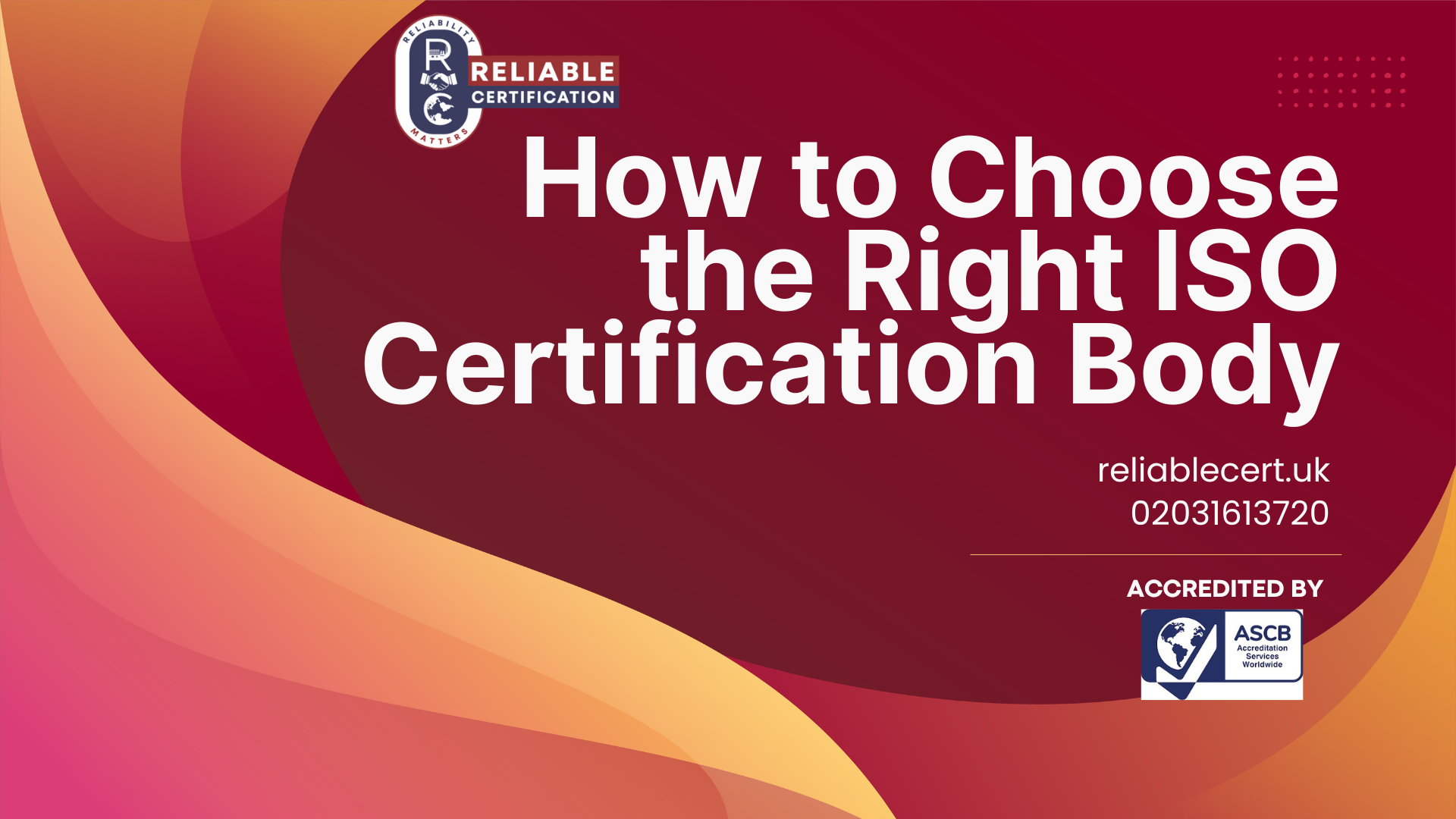Learn how to choose the right ISO certification body for your business. Ensure credibility, trust, and value with expert tips and red flags to avoid.

Choosing the right ISO certification body is a major decision for any business aiming to meet international standards. It's not just about getting a certificate to hang on the wall—it's about ensuring that your business processes are genuinely aligned with best practices.
With so many certification bodies out there, it can be difficult to know who to trust. Some offer attractive packages and fast results, but that doesn’t always mean they’re credible. A reliable ISO certification body brings real value by conducting thorough, fair audits and offering certifications that are recognized globally.
In this blog, we'll walk you through the key factors to consider when selecting the right ISO certification body for your business.
Not every certification body operates to the same standard. Some may lack accreditation or follow shortcuts, which can put your business at risk. Choosing the right ISO certification body ensures your efforts are meaningful, compliant, and internationally accepted.
When you work with a reputable certification body, you gain more than a certificate. You also gain:
One of the first things you should check is whether the certification body is accredited by a recognized authority. Accreditation is like a seal of approval, it shows that the certification body follows proper rules and has been assessed for its competence.
Look for certification bodies accredited by national bodies such as UKAS (United Kingdom), ANAB (United States), PNAC (Pakistan), or DAC (United Arab Emirates). You can often verify their accreditation on the official website of the accreditation body.
Avoid companies that offer ISO certificates without proof of accreditation. A certificate from an unaccredited body might not be accepted by your clients, regulators, or international partners.
Every industry is different. A good certification body should understand the specific challenges and standards of your sector. For example, the requirements for an IT company going for ISO 27001 are very different from those of a construction company applying for ISO 45001.
Before you make your decision, ask if the certification body has worked with businesses like yours. Do they have auditors who understand your industry? Can they offer insights and examples from similar companies?
Choosing a body with relevant experience helps ensure a smoother audit process and more meaningful feedback
Make sure the certification body offers the ISO standard you need. Some common ones include:
If your business is planning to grow or expand into other areas, it’s helpful to work with a certification body that can support multiple ISO standards over time.
A professional ISO certification body should maintain full independence during the audit process. They should not be offering consultancy and certification services under the same name, as this creates a conflict of interest.
Be wary of companies that promise guaranteed certification or “quick fixes.” Ethical certification bodies will take the time to properly assess your processes and help you identify areas for improvement, not just rubber-stamp your application.
Before you commit, make sure you understand exactly what the certification process involves. A reputable ISO certification body should provide a step-by-step outline, including:
They should also offer transparent pricing with no hidden charges. Ask for a detailed quote that includes all stages of the certification process, including follow-up or annual surveillance audits.
ISO certification is not a one-time event—it’s an ongoing process. You want a certification body that offers good support, clear communication, and a helpful attitude.
Look for signs of professionalism such as:
A supportive certification body can make a big difference in helping your business grow with confidence.
Reputation matters. Take the time to read reviews, testimonials, and case studies. A reliable certification body should have a history of satisfied clients and real-life examples of successful audits.
Don’t hesitate to ask for references or speak with other businesses that have used their services. This will give you insight into how they operate and whether they deliver on their promises.
While most certification bodies operate professionally, there are a few warning signs that should make you think twice. Be cautious if you notice any of the following:
These red flags can lead to poor-quality audits and certificates that may not be accepted by clients or regulators.
To make your selection process easier, here are a few questions you can ask potential certification bodies:
The answers to these questions will help you compare options and choose the best partner for your certification needs.
Choosing the right ISO certification body is a decision that can impact your business for years to come. A trusted, accredited, and experienced body will not only help you achieve certification, but it will also guide you through a process that improves how your business operates.
Take the time to research, ask questions, and compare your options. Look for a certification body that offers real value, professional guidance, and long-term support. When done right, ISO certification becomes more than a requirement—it becomes a tool for growth, trust, and lasting success.
Ready to get ISO certified with a trusted UK-based body? Contact Reliable Certification today to speak with our experts
Typically replies within 30 minutes